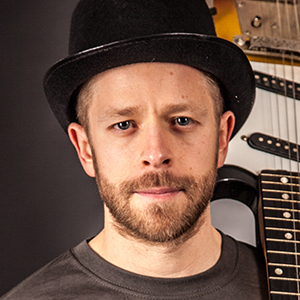All You Need to Know About Starting a Company
What is Copyright Registration?
Copyright registration refers as providing authority to the owner over reproduction, distribution, adaptation and translation of the work. It applies to literary work (books, scripts, software) and audio-visual work (music, photographs, movies). All business enterprises provide copyright instruction manuals, product literature and user guides to public domain. Copyright is generally owned by the creator of the work but it can also be owned by the employer of its creator or the person who has commissioned the work. Copyrights can also be transfer to another party with a contract in hand.
6 Essential Facts on Copyright
Why do you have to register for copyright?
Copyright recognises the exclusive rights of the creator over an original work. Music, books, manuscripts, software, films, fashion designs, even brochures and training manuals all enjoy copyright protection, even without registration. Basically, the moment you create an original work, you are its exclusive owner. However, in the commercial world, the reason why artists, publishers and corporates still bother to register the copyright on their work is that it’s the only way to approach the courts in case of a dispute.
What is the purpose of the copyright registrar?
The copyright registrar primarily serves as an office of record, a place where claims to copyright are registered and documents related to copyright are recorded. The office furnishes information about the provisions of the copyright law and the procedures for making registration, to explain the operations and practices of the copyright office, and to report on facts found in its public records.
What copyright protection do I get?
Copyright protection arises automatically the moment the author fixes the work in a tangible form (for instance when a writer writes her story) without the author having to do anything. Registering your work with the registrar of the copyright office is basically a copyright protection insurance policy. It creates a public record of the work and you can then sue anyone for copyright infringement. Furthermore, this registration is only recognised prima facie if done within five years of the creation of the work. It isn’t as if you can just postpone registration until someone actually does steal your work.
How would another party prove rights to my work?
Another party will need to prove their right to the work by showing they had a pre-existing copyright claim to the work, proving that you permitted its use, that you didn’t actually create the work or that you stole the copyright from them.
What are performer's rights?
Any person hearing it could by taking down the lecture or story in shorthand reduces it to material form. Similarly, music could be recorded on tape. Therefore, do the persons who first reduced the performance to a material form become the copyright owners of the lecture, story or dramatic performance or music? This is not so, as certain special rights (performer's rights) have been conferred upon any performer of his performance. The performer in this context includes an actor, singer, musician, dancer, acrobat, juggler, conjurer, a person delivering a lecture or any other person who delivers a performance.
Can I copyright a film or sound recording?
In case you want to copyright a video, film or an audio recording track, it is recommended that you get an NoC from all the people involved in its making. This will protect you from any objections from them at a later date. This has become imperative now after the latest Supreme Court guidelines on sound recording and cinematography copyright registration.
Documents Required for Copyright Registration
PERSONAL DETAILS
- Name, Address and Nationality of the Applicant
- Nature of the Applicant’s Interest in the Copyright: State whether the applicant is the author of the work or the representative of the author.
NATURE OF THE WORK
- Class & Description of the Work
- Title of the Work
- Language of the Work
- If Published, the Date of Publication
Testimonials
Advantages of Copyright Registration

Legal Protection
Copyright Registration will ensure to protect your original work from infringement. So, it will provide you the legal protection whenever someone try to reproduce your work.

Market Presence
Copyright registration will maintain a public record of your work and acts as a proof of your ownership to that work. So, it can be widely used in marketing your brand and building a customer base.

Rights of the Owner
Copyright registration will give its owner the authority over reproduction, distribution, adaptation and translation of your work.
Copyright Registration Process
- Our representative will contact you to get the basic details related to your work which you want to copyright. You will be asked to provide us 3 copies of your unique content on a CD and a signed authorisation letter which will be provided to you by email.
- Then, the application will be prepared by our experts. He will also file the necessary forms online with the Registrar of Copyrights.
- On completion of the copyright application, a diary number will be provided to you. It will take 12 months to get it registered. During this time, you may be asked to provide some clarifications if required. Our representatives will keep you updated of the changes in the status of your application throughout the process. In case of any objection to your application from any other party or the examiner, you will have to file a response within 45 days.


